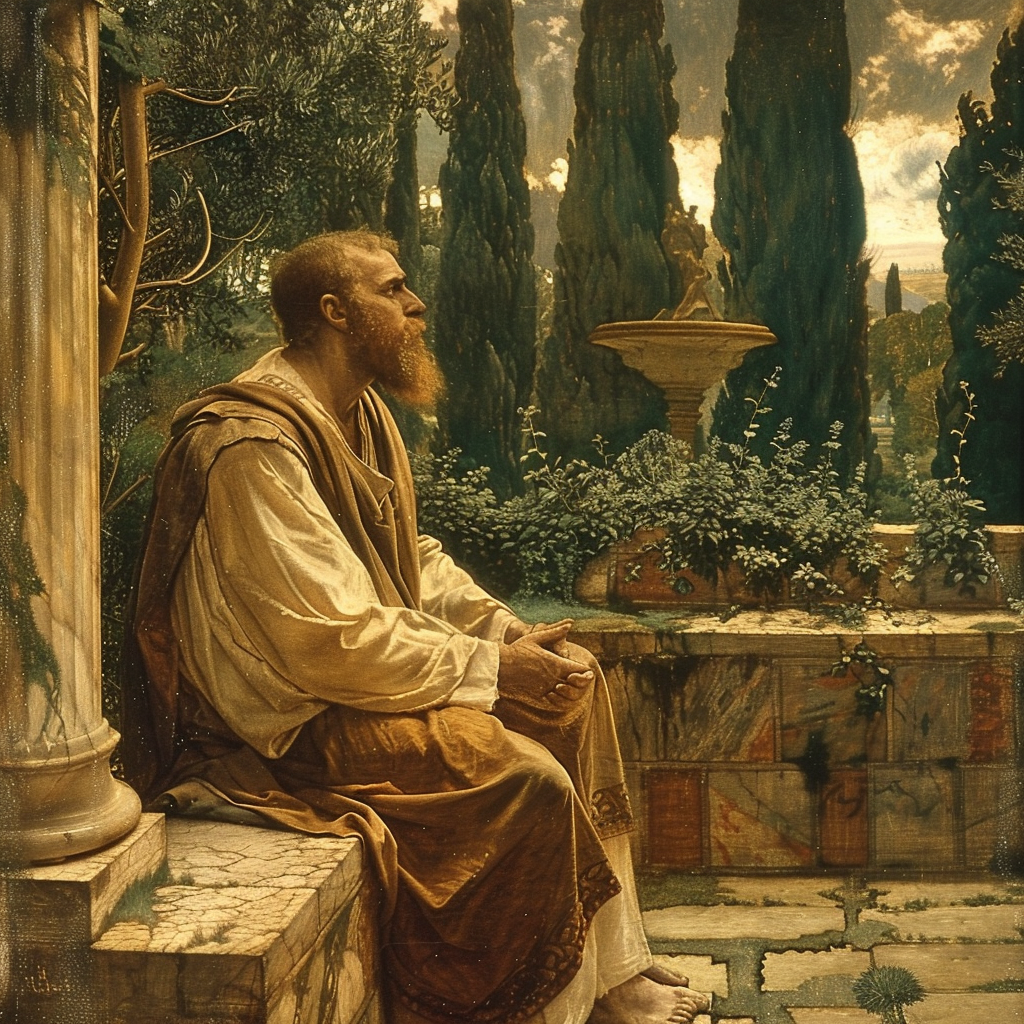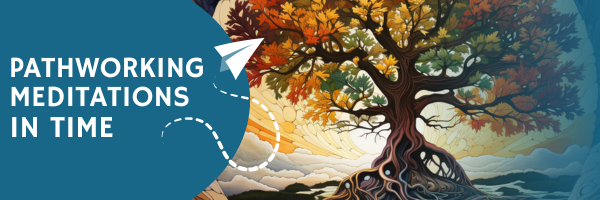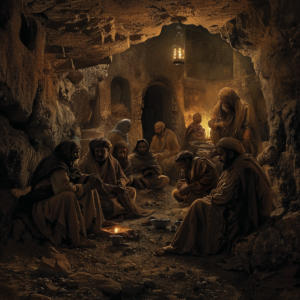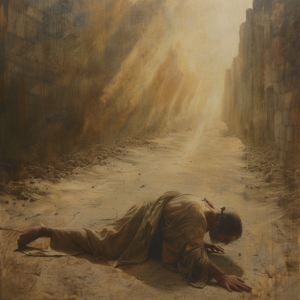
Beneath the starlit canopy of Thagaste, a small town cradled in the heart of the Roman province of Numidia, Augustine was born into a world brimming with the confluence of cultural and spiritual ideologies. Endowed with a brilliant mind and a boundless curiosity, he was poised to embark on a journey that would intertwine the threads of faith and reason, profoundly shaping theology and philosophy.
Augustine’s youth was a storm of intellectual restlessness. Disenchanted with the simplicity of his Christian upbringing, he turned to Manicheanism, a sect that promised the clarity his voracious intellect demanded. Fervent debates and relentless questioning consumed his days and nights, yet these did not quench his thirst for truth but fueled his continuing uncertainty.
His mother, Monica, watched her son’s spiritual turmoil with a heavy heart. Her tears, shed in silent vigils, watered the barren soils of his faith. Meanwhile, Augustine found himself unexpectedly drawn to the philosophical richness of Neoplatonism, which revealed the divine presence in all things, guiding him inadvertently toward Rome and a destiny-changing encounter.
In the vibrant tumult of Rome, Augustine crossed paths with Bishop Ambrose, whose sermons, rich with philosophical nuance, echoed in the chambers of Augustine’s soul, awakening a stir of emotions he had long suppressed. This encounter catalyzed a profound internal struggle, pulling him back toward a faith he had once rejected.
The transformation culminated in a Milanese garden, where a child’s sing-song voice pierced the air with a divine command: “Tolle, lege” — take up and read. Heeding this celestial instruction, Augustine opened the Holy Scriptures. The words of St. Paul in Romans 13:13-14 ignited within him a profound spiritual awakening, extinguishing his doubts and igniting a flame of steadfast belief.
Augustine’s baptism by Ambrose marked his profound transformation. The philosopher was reborn as a theologian, and the skeptic was now a fervent believer. His odyssey through skepticism led him to embrace a truth that transcended philosophical discourse—the redemptive power of Christ’s grace.
His writings, especially the “Confessions,” offer a vulnerable account of his journey and continue to resonate with many. They illustrate that faith is not merely about accepting doctrines but about relentlessly exploring the divine mystery.
Thematic Parallels in Augustine’s Story
- Prodigal Son: Augustine’s early wanderings mirror the biblical parable of the Prodigal Son. Augustine strays into philosophical diversions like the wayward son who leaves home to pursue worldly pleasures. His mother’s steadfastness mirrors the father’s patient anticipation, her prayers echoing the unconditional love awaiting his return.
- Conversion of Saul: Augustine’s profound encounter in the garden echoes Saul’s transformation on the road to Damascus. Both men, initially opposed to Christian teachings, experience radical conversions through divine intervention, reshaping their lives to champion the Christian faith.
- Seek, and You Shall Find: Augustine’s relentless pursuit of truth embodies the principle that those who earnestly seek shall indeed find. Though fraught with challenges, his philosophical inquiries ultimately lead him to a deeper understanding of God.
- The Armor of God: Post-conversion, Augustine donned the spiritual “armor of God,” dedicating his life to defending Christianity through his writings and sermons. He effectively used the “sword of the Spirit” to engage in theological battles.
- Grace: The theme of grace is central to Augustine’s narrative; it underscores the unearned favor bestowed upon him despite his initial resistance to faith. His journey from skepticism to belief highlights the transformative power of divine grace, offering hope to all who struggle with doubts.
Augustine’s story is a powerful testament to the enduring search for truth. It shows how persistent questioning can lead to profound faith and illustrates the timeless impact of divine grace on the human spirit.
12The night is nearly over; the day has drawn near. So let us lay aside the deeds of darkness and put on the armor of light. 13Let us behave decently, as in the daytime, not in carousing and drunkenness, not in sexual immorality and debauchery, not in dissension and jealousy. 14Instead, clothe yourselves with the Lord Jesus Christ, and make no provision for the desires of the flesh.…
No tags for this post.


